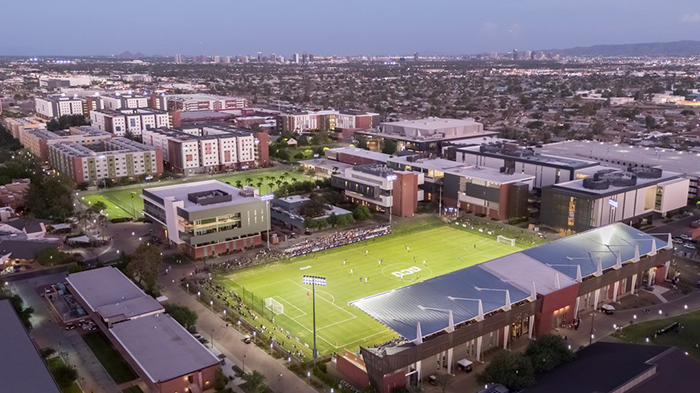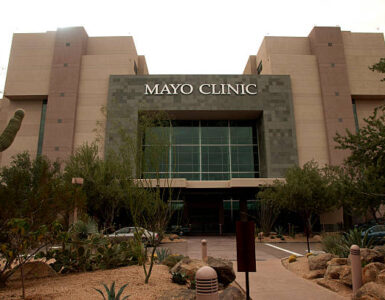Amid the many things that have changed during Grand Canyon University’s (GCU) remarkable transformation of the past decade, one thing has not: the cost of tuition.
For the 13th year in a row, the private Christian university in west Phoenix is freezing tuition. Meanwhile, student enrollment numbers are clocking in at the highest ever in its 71-year history.
Competitive pricing and a large bucket of scholarship dollars are largely responsible, university officials said.
In turn, the affordability factor is driving diversity higher on campus, said the university’s visionary leader, Brian Mueller.

“We have a number of different initiatives that address diversity both on our campus and in our community, but the single biggest differentiator has been our ability to make private Christian education affordable to all socioeconomic classes of Americans,” said Mueller, president and CEO.
Today, 46 percent of enrollment are students of color, including 28 percent Latino and 6 percent Black.
Private college education at public university prices
While tuition will remain at $16,500 for the 2021-22 academic year, more than 90 percent of GCU students qualified for institutional scholarships, thereby cutting that figure by almost half.
Nearly $160 million in scholarships were awarded this year. That pushed the average cost of tuition to approximately $8,900, school officials said.
Meanwhile, the average cost for tuition and fees at four-year private institutions has risen 32 percent to $37,650 since 2008-09, according to the College Board’s Trends in College Pricing and Student Aid Report. The average cost for four-year public colleges rose 40 percent during that time to $10,560.
GCU also is competitive when it comes to room and board. The average cost of room and board at a four-year public college rose to $11,620 in 2020-21 and to $13,120 at a four-year private institution.
GCU’s average room and board cost is just $8,128 with nearly all of the residence halls built in the past 10 years. Roughly half offer single-occupancy, apartment-style living.
Grads walking away with less debt
As a result of the tuition freezes and scholarships, grads are also incurring less debt — an average of $20,168, according to 2016-18 data from the U.S. Department of Education’s College Scorecard.
The national average at public and private nonprofit colleges is $28,950, according to 2019 data from the nonprofit Institute for College Access and Success.
Success tied to rising enrollment, spin-off businesses
The university’s success and ability to keep tuition stable year after year has paid off.
In 2008-09, on-campus enrollment was about 1,000 students. Today, GCU is a hybrid campus with 23,000 ground campus students and more than 90,000 online students, school officials said. This year brought the largest freshman class ever with about 8,200 students. Online enrollment grew 7.5 percent.

University coffers also are benefiting from 10 spin-off businesses the school has developed on and near campus including the GCU Hotel, golf course, restaurants and Canyon Promotions.
Huge investment in technology and infrastructure
Luck has played a part in the school’s success as well. Prior to the pandemic, the university had invested $250 million in technology during the past decade. While other schools struggled to adapt, GCU’s transition to online learning was fairly seamless, school officials said.
The university has also invested in new residence halls, campus buildings, and other infrastructure. Private development surrounding the campus has also flourished.
“We feel very blessed that we have been able to invest nearly $1.5 billion into our campus infrastructure in the last 12 years to keep up with the growth of the university,” President and CEO Mueller said. “We have been able to do that by using our cash reserves without passing those costs on to students through increases in tuition.”
















Add comment